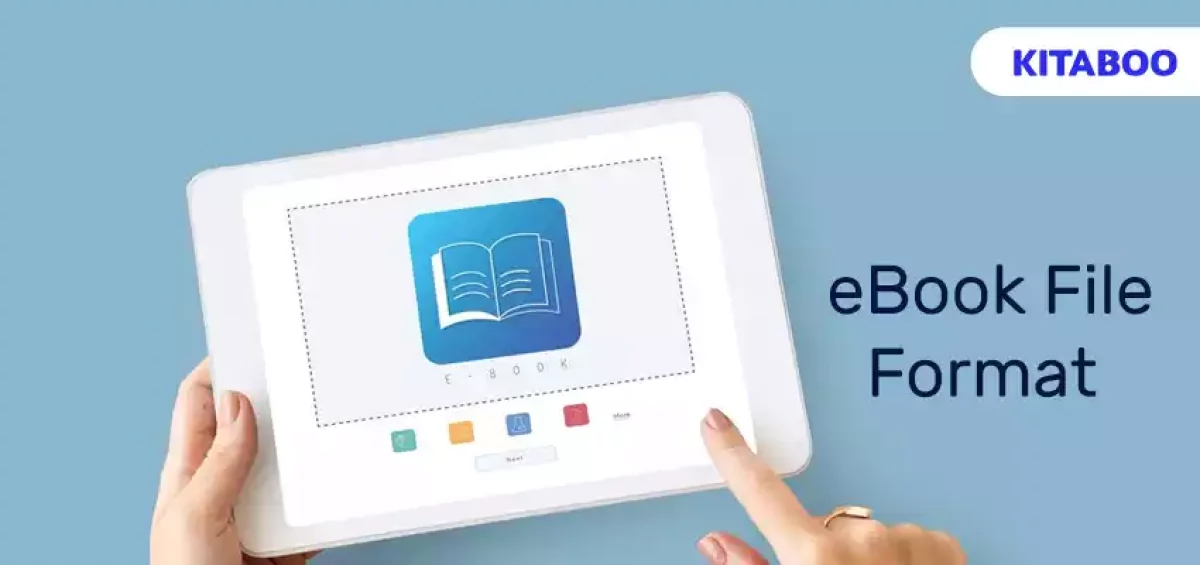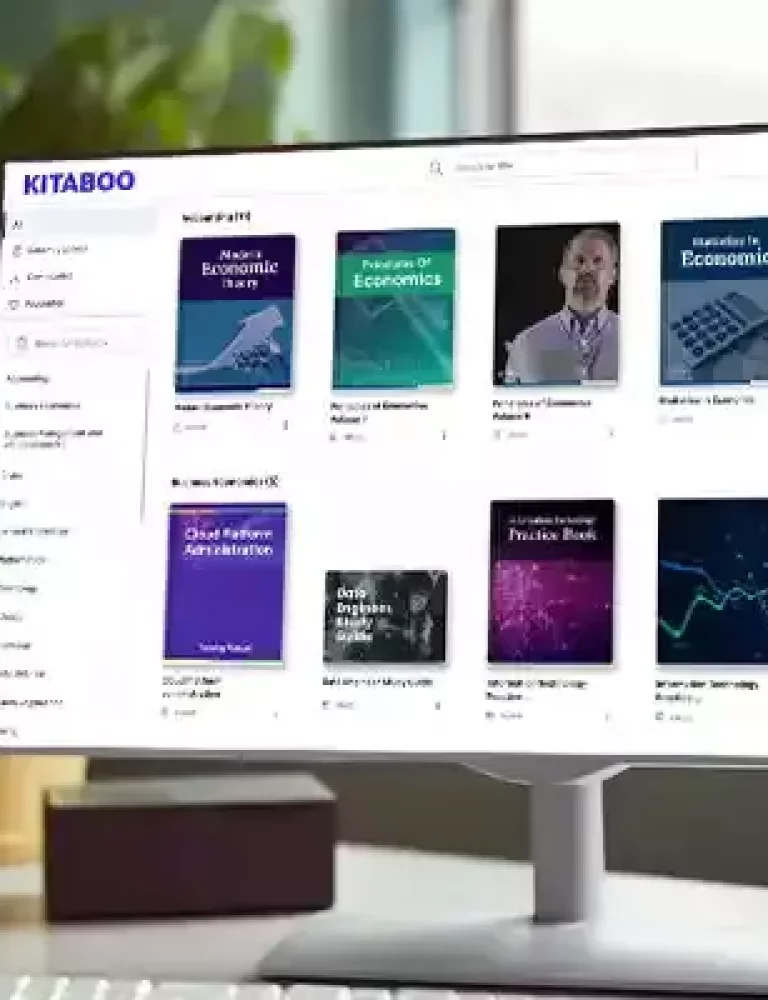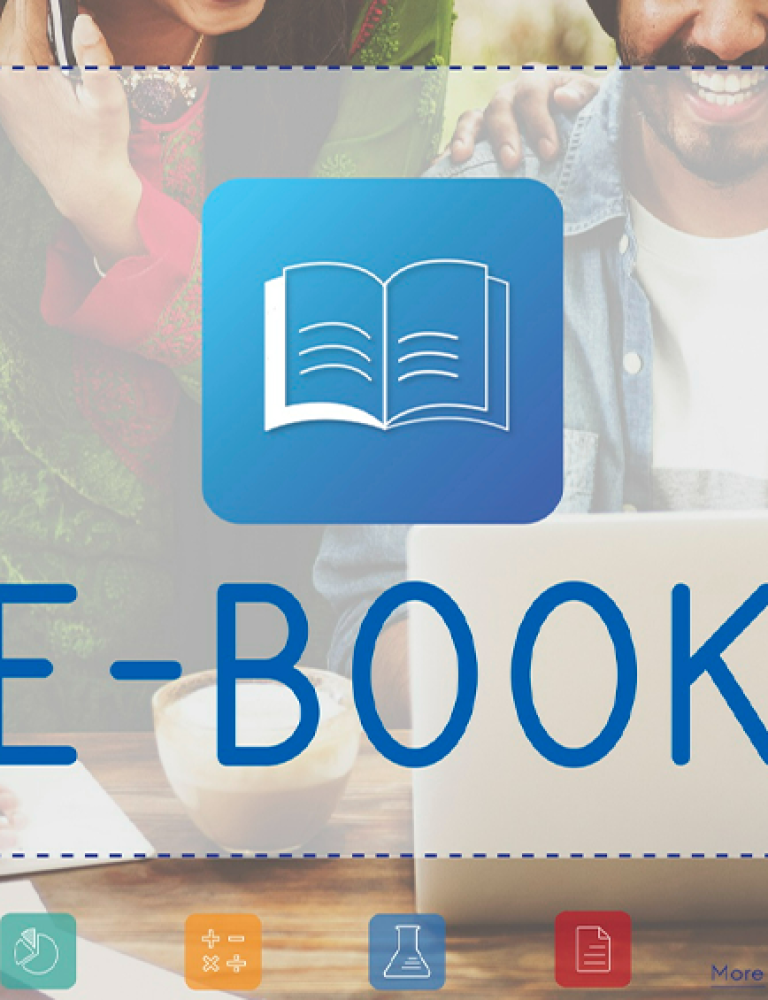The growth of Information Technology and the internet has caused a rise in the spread of digital information worldwide. This boom has driven the popularity and widespread adoption of electronic books, or eBooks. Given that the eBook market is now valued at $ 22,448.18 million in 2024, it would be wise to convert your textbook publications into eBooks.
While there are various eBook formats to choose from, the majority are not extensively utilized by educational publishers today.
Below is a compilation of the most user-friendly and widely adopted eBook file formats that will help you decode their technicalities and widen your audience.
Table of Contents:
Exploring eBook Formats and Their Pros and Cons
Due to the proprietary and open standard format of eBooks, publishers now have a wide range of options for creating eBooks in different formats. You must pick a format that offers flexibility and customization options, such as the ability to embed links, mimic a physical book, and more. Apart from this, another aspect to consider is that not all eReaders support all eBook formats.
Here is a detailed eBook file format comparison along with their pros and cons:
TXT (.txt) Format
A plain text file is one of the most basic eBook file formats. It uses the .txt file extension. These files are exclusively designed for textual content and do not support images or graphs. They are typically used to store information with basic fonts and font styles.
TXT format files do not offer Digital Rights Management (DRM) protection, fixed layouts, or interactivity. However, they are an ideal choice for publishing text-heavy eBooks such as research reports.
Pros:
- Individuals can generate basic text without the need for specialized software or expertise.
- The majority of devices can display plain text in various ways. Android devices, for instance, can view plain text using any note or an Office application, while computers have text editors that allow for the viewing of plain text.
- It allows the reformatting of plain text and adjusts the content dynamically to screens of different sizes.
Cons:
- Unformatted text can be difficult to read.
- One cannot create hyperlinks from a table of contents to a particular chapter.
- This file format does not support graphics.
- It does not offer any point-and-click benefits that could enhance the speed of accessing information.
ePub (.epub) Format
Electronic publication (ePub) is among the most widely used eBook file formats and is compatible with a variety of devices, such as computers, smartphones, tablets, and most eReaders.
ePub files come with Digital Rights Management (DRM) and robust copy protection features. They are designed to be reflowable while also accommodating fixed layouts.
- Reflowable ePub Files: This is one of the most commonly adopted file formats and is known for its ability to adapt and reflow text and images to fit different screen sizes. With its flat and linear design, images seamlessly accompany the text without any overlap or text wrapping.
- Fixed-layout ePub Files: This file format features intricate designs. All effects, images, and layouts present in the program will be preserved in their original layout. Additionally, it is compatible with JavaScript, enabling interactive features and animated elements.
Pros:
- ePub uses HTML combined with open-source technologies to create a flexible eBook format that is versatile, interactive, and efficient in handling various tasks that HTML can handle.
- It allows the customizing of fonts, colors, and sizes by utilizing standard HTML and CSS for formatting, enabling to override styles as necessary.
- ePub reader applications are supported on a wide range of eReader devices, as well as on most computers and mobiles.
Cons
- Certain devices may not be compatible with ePub files without conversion.
If you are looking for a digital textbook platform that offers comprehensive solutions for creating, distributing, and optimizing ePub eBooks, visit KITABOO. With KITABOO, you can effortlessly customize fonts, layouts, and interactive elements to engage your readers across multiple devices.
FictionBook (.fb2) Format
This eBook format is an XML format that consolidates an entire book and any images into a single file. Its purpose is not to store scanned documents, like a complete scan of a comic book or a historical facsimile, but rather to serve as a predominantly text-based book with a few images.
.fb2 boasts all the modern features that you would expect to find in an eBook. It includes hyperlinks, different font styles, and complex layouts. Additionally, its dynamic nature allows text to wrap seamlessly to fit screens of any size.
Pros
- FictionBook is a versatile markup language that allows for content to be contained within a single file.
- It features rich text with diverse elements such as images, hyperlinks, and native dynamic content.
- The process of creating and converting is simple if you are comfortable with XML and its related toolchain.
Cons
- It provides limited support on dedicated eReader devices unless your device is compatible with FBReader.
AZW (.azw) and AZW3 (.azw3) Formats
The AZW file format debuted with the Amazon Kindle back in 2007 and was created to replace MOBI files. Ever since, this has become a widely popular eBook format. These files can store intricate content such as bookmarks, annotations, and highlights.
While AZW files utilize the MOBI format, they incorporate DRM protection that restricts their accessibility to Kindles or devices equipped with Kindle apps.
Kindle eReaders used the AZW format for a long while until Amazon introduced AZW3 files following the release of the Kindle Fire. This is an upgraded version of the Kindle eBook file, incorporating HTML and CSS to enhance its capabilities for styles, fonts, and layouts.
Pros
- AZW3 lets you use CSS3 and HTML5, which enhances the visual appeal and interactivity of eBooks.
- It offers better control over typography, which improves readability and aesthetics.
- Both AZW and AZW3 formats support Amazon’s Digital Rights Management (DRM) protection.
Cons:
- AZW format may lack advanced features like enhanced formatting and multimedia support.
- AZW3 may not be fully supported by older Kindle devices or some third-party eReaders, limiting accessibility for certain users.
PDF (.pdf) Format
Adobe PDFs are known for their user-friendly nature and their capability to preserve sophisticated designs and formats. They are one of the most widely utilized eBook formats, particularly among marketers. However, though this PDF format is not considered a genuine eBook file format due to its lack of re-flowability, it is the format that the majority of individuals are familiar with.
PDFs share similarities with the fixed-layout ePub file format. However, unlike ePubs, PDFs only offer basic copy protection, making them easily downloadable and shareable for free.
Pros
- It maintains the formatting of a book’s print layout, regardless of its compatibility with digital screens.
- Most eReaders and devices widely support this format.
Cons
- PDFs, designed for printing purposes, are affected by resolution changes and fail to adjust effectively to varying screen sizes.
- Converting from PDF to any other format can be a challenging task, which requires professional assistance.
- As they are unable to adapt to different screen sizes, reading them on a small screen can be challenging, and their interactive features are limited.
Final Words
eBooks have become vital companions in the modern digital world, providing a plethora of information and enjoyment. Experts anticipate that the eBooks market will attract 1.1 billion users by 2027.
Understanding the array of eBook formats is key as we journey through this digital age. From the straightforward TXT to the versatile ePub, each format brings its perks.
Yet, the choice depends on what best suits your needs. Whether it’s the wide compatibility of ePubs or the tailored experience of AZW3, picking the right format opens doors for both creators and learners.
Curious to explore more about eBooks and their formats? Dive deeper into the world of digital publishing with KITABOO, your ultimate companion in creating, distributing, and enjoying digital textbooks.
Learn more by connecting with us today!
Discover How An Ebook Conversion, Publishing & Distribution Platform Can Help You
Kitaboo is a cloud-based content platform to create-publish & securely distribute interactive mobile-ready ebooks.
You May Also Like







